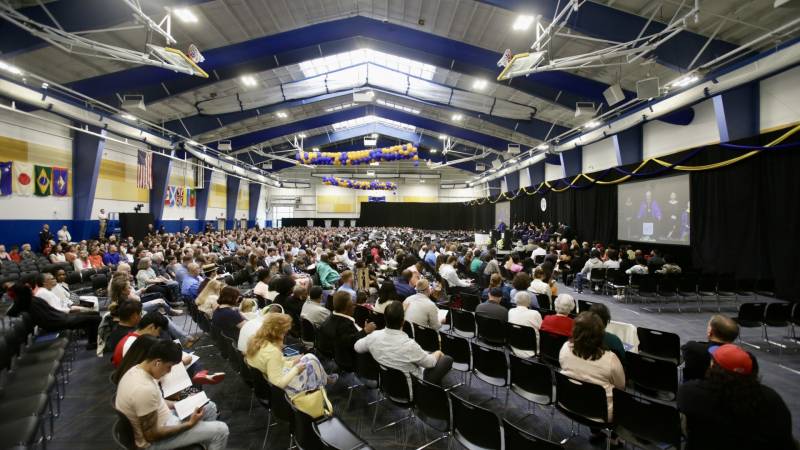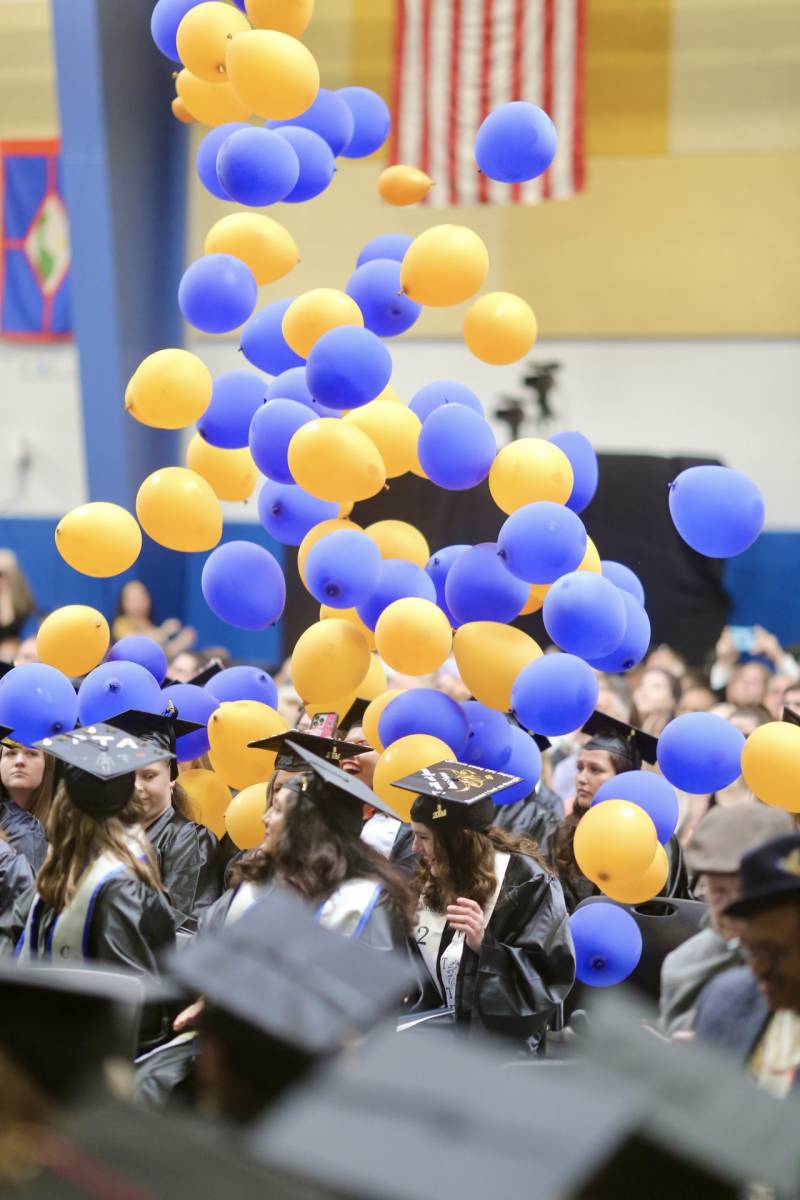
Photo by Nick Serrata
As he addressed a packed Richard C. Call Arena filled with anxious impending graduates and Saturday afternoon, Genesee Community College history professor Charles Scruggs drew upon where they sat and what it meant in every sense of the word.
He first gave the precise location of where they sat — 43.1059 degrees north of the equator and negative 78.1404 degrees west of the Prime Meridian.
“But today is really not about pinpointing degrees; it’s about conferring them. And that will be done right here in the Call Arena. What a fitting and proper name, a call arena with which to complete the delineation of our commencement address. The most obvious observation to make in defense of my thesis is that while each part of today’s program is integral to the whole, we are all eagerly awaiting the time at which the provost will quite literally call the name of each graduate,” Scruggs said. “My thesis finds further support … the Latin verb is vocare, which means to call, and its ‘voc’ stem makes its way into English and a number of words which are astonishingly relevant to our celebration this afternoon.”
He cited three examples: convocation, which means a calling together of a community of scholars to mark the milestone; vocation, the work we are called to do to fulfill a higher purpose; and the word advocate, meaning one who calls for public support of a cause.
“My colleagues and I, decked out in our academic regalia, are not contractually obligated to be here today, but our presence today has nothing to do with a contract and everything to do with answering a call to pay tribute to you, the Class of 2024,” he said. “May each of you in the Class of 2024 find your calling as my colleagues and I have found ours as educators. May each of you in the Class of 2024 follow the lead of Richard C. Call and be an advocate in your personal and professional lives. If Call is a fitting and proper name, so too is arena, and they complement each other perfectly.”
He referred to the frequently quoted speech given by Theodore Roosevelt about the Man in the Arena.
“The credit belongs to the man who is actually in the arena, whose face is marred by dust and sweat and blood, who strives valiantly, who errs, who comes up short, again and again. Because there is no effort without error and shortcoming,” he said. “But who does actually strive to do the deeds, who knows great of high achievement and who at the worst, if he fails, at least fails while daring greatly.”
“The Class of 2024 is positively resplendent in its diversity. In striving to complete a challenging curriculum, each of you in the Class of 2024 has dared greatly, and today, we celebrate your triumph of high achievement,” he said. “May you continue to dare greatly in the arenas of your choosing, and may you always remember that you have family, friends, and a faculty and staff that are never more than a call away.”
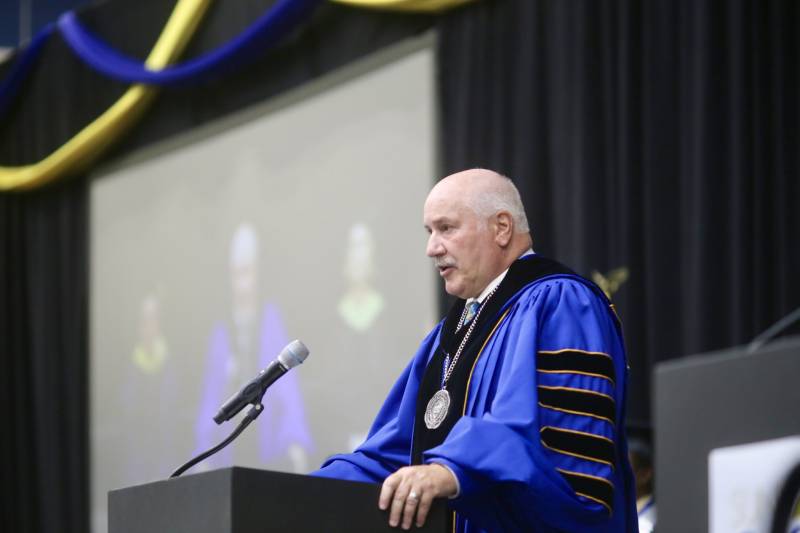
Outgoing college president Dr. James Sunser officiated the 56th commencement ceremony and was keynote speaker. Sunser had previously announced that he would be retiring from his post at the end of this college year after assuming the role in the summer of 2011.
Before coming to the Batavia campus, he had been an administrator at Syracuse University for five years and Onondaga Community College for more than 22 years, and he had worked in other senior-level positions throughout his education-focused career.
“Dr. Sunser is known for his collaborative approach, bringing together stakeholders from across the academic community to drive positive change and achieve shared goals,” Board of Trustees Chairwoman Jackie Whiting said. “During his career, he has spearheaded initiatives aimed at expanding access to quality higher education, fostering a culture of academic excellence and promoting student success. Dr. Sunser has left a lasting impact on the college and broader community that is inspirational to future generations of educators and leaders.”
Sunser said that he hoped his words would perhaps serve as a bit of inspiration since, as a first-generation college student who worked his way while pursuing degrees, from an associate's to a bachelor’s degree in science on to his master’s and finally a doctorate from the University of Rochester. He didn’t stop there, also completing postdoctoral work at Harvard and Cornell universities, certainly walking his family’s talk and beliefs in the importance of obtaining a solid education.
The son of a blue-collar father who worked hard for 25 years before being let go when the company left New York, Sunser learned early on how difficult it could be to be left in the lurch with only a high school diploma and a company pin to show for it.
His father, a dedicated employee who was then in his 40s and unemployed, had to shift his previous thinking about sending the kids to college full-time while also realizing the difficulty of finding a job without a higher education.
“My older sister and I saw the impact it had on our family, and as things tightened more and more, we had a conversation with our parents. We talked about shifting our focus from full-time college and part-time work to full-time work and part-time school so we could help out more at home. That was an extremely hard conversation for my father to listen to. And when he did not immediately say no to our suggestion, we knew how serious it really was. After that conversation, my nontraditional higher education journey began in earnest. I spent the next few years working full time at everything from being a janitor in the local church that was near my community college to overnight as a loader for UPS while I also attended college both full- and part-time until I finished my associate's degree,” he said. “Following my associate's degree, I worked in the private sector and continued to take part-time classes and work towards more degrees, actually having earned two at Syracuse University. An opportunity arose while I was working to work for Syracuse University. And at that time, I was able to work full-time and attend college full-time, allowing me to earn those degrees. And I was very grateful for that opportunity.”
He credited his wife Roseanne for helping him through the rest of his journey so far, encouraging graduates that “we all need help and support to live our best life,” and said that his father ended up getting a job that he loved and seeing all three of his children walk across the stage as college graduates.
“And it was one of his proudest moments,” Sunser said. "Sadly, my father passed away at 64. Coincidentally, the age I am as of today is far too young in my mind, but I’m grateful he lived long enough to see his biggest personal regret of us having to alter our college plans rectified with all of us graduating. I’m proud of what I’ve accomplished, being able to attend some of the best colleges and universities in the world.
"I’ve done it with a lot of help and support, but none of it was done with an eye towards becoming a college president and how that could play a role in impacting others. But fortunately for me, it has led to that very result," he said. "I don’t say this as a kind of boast or self-adulation; I say to you because I want you to see firsthand an example of how education, staying open to opportunities, and working hard can lead to success in your life and career.”
He then gave the audience a quiz based on famed cartoonist Charles Schultz’s philosophy about the type of people who really make an impact on one’s life. After asking folks to name the wealthiest people, Heisman Trophy and Pulitzer Prize winners and such, and acknowledging that he, too, came up short on naming names, Sunser then asked attendees about friends who helped them through a very difficult time, taught them something worthwhile, made them feel appreciated and special, and are people they enjoy spending time with.
“Was that easier? I think so. The lesson: the people who make a difference in our lives are not the ones with the most credentials, the most money, or the most awards. They simply are the ones who care the most,” he said. “Graduates, tell the people who have made a difference in your life today what they've meant to you, and going forward, take baby steps and commit yourself to being that special person for others. It may not seem like much, but can you imagine how much better the world would be if we all follow those simple rules?
“It may not seem significant, but that philosophy has made a tremendous difference in my life. And I hope it can for you also. Don't get consumed or overwhelmed thinking you really can't make a difference because you can. Don't be frozen by thinking that the world is ending tomorrow. It won’t. In fact, as proof, I can tell you, it's already tomorrow in Australia,” he said. “Commit yourself to taking baby steps, and you can make everyone's tomorrow brighter and better. Just follow the simple philosophy of Mr. Schultz. Congratulations, Class of 2024. Go forward, take baby steps and make a difference in the world.”
Photos by Nick Serrata
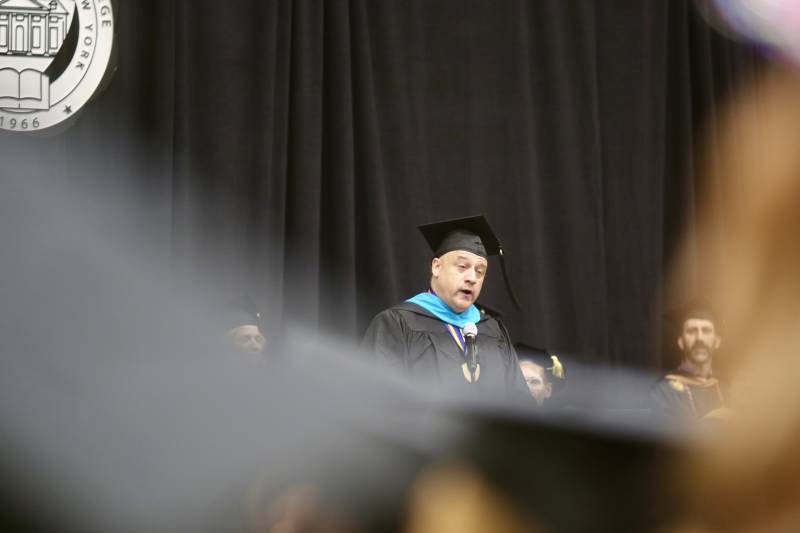
Photo by Nick Serrata
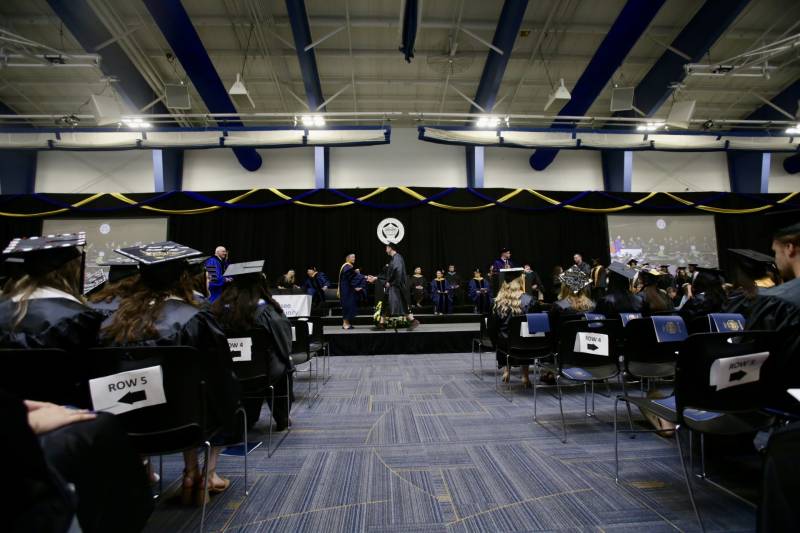
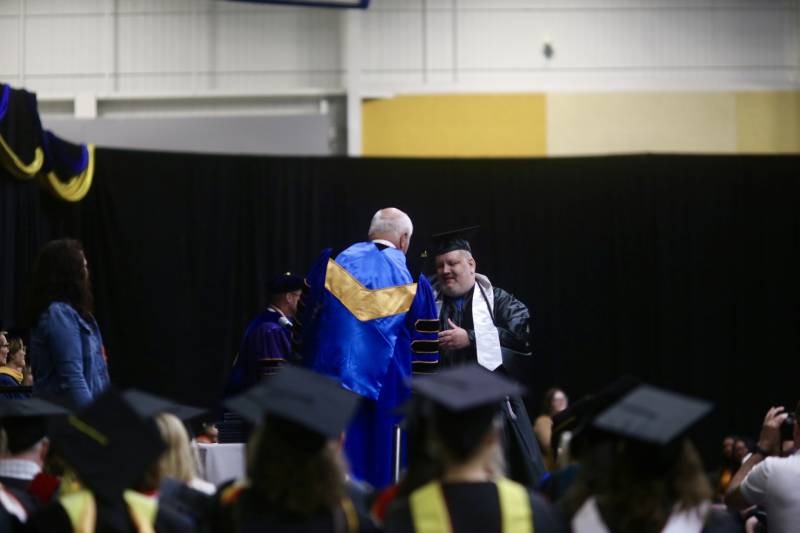
photo by Nick Serrata
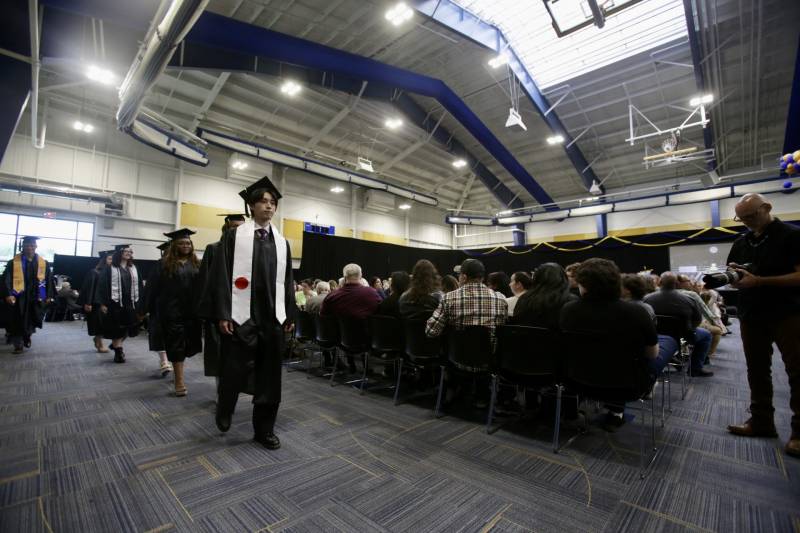
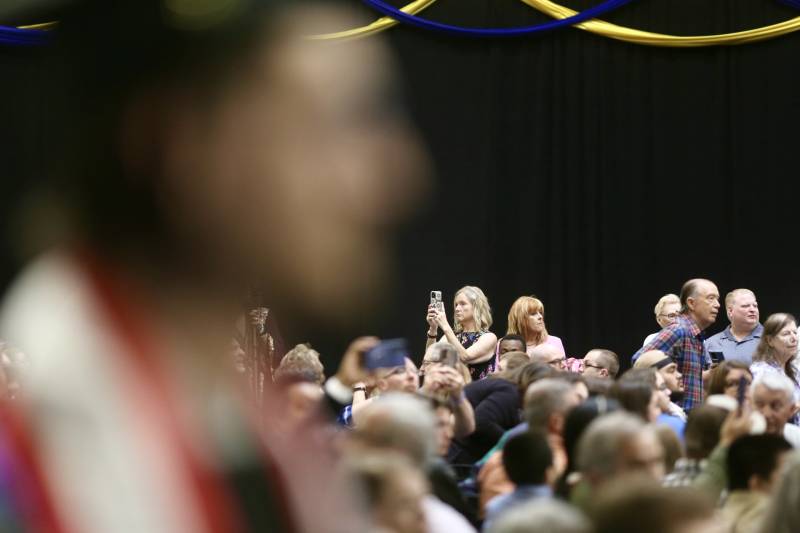
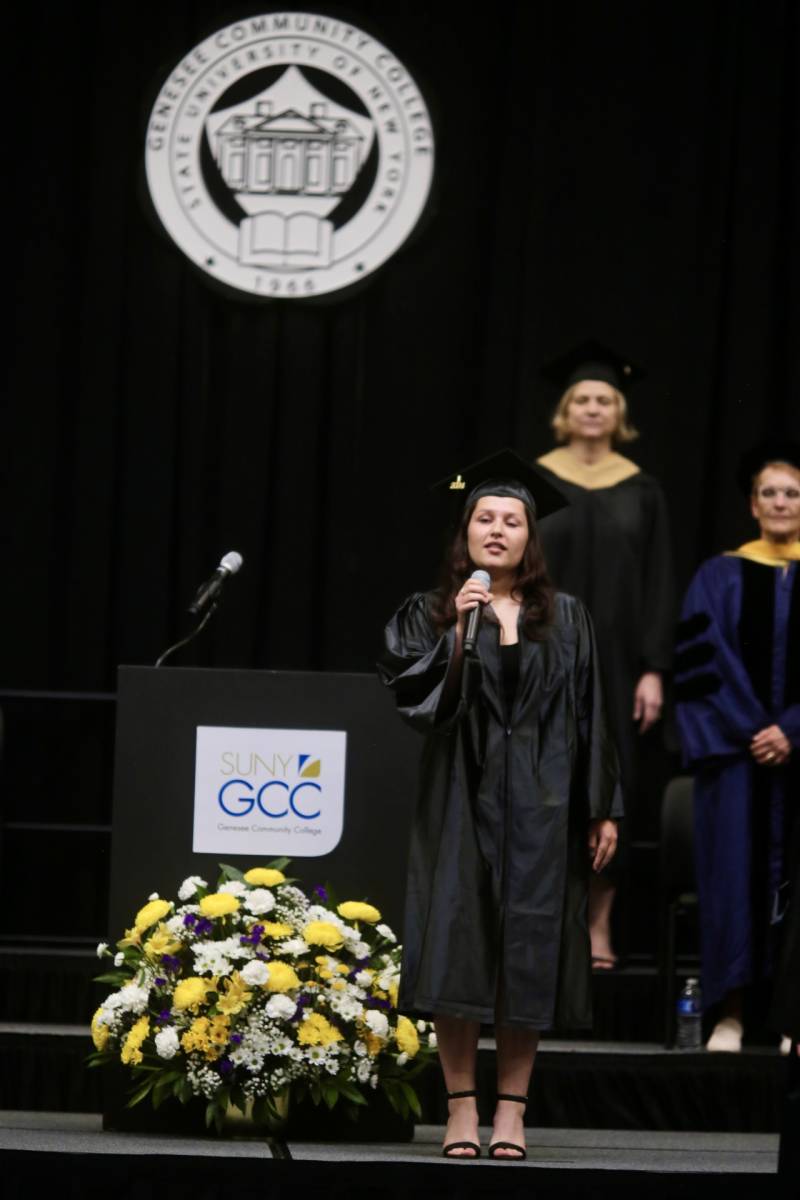
Photo by Nick Serrata
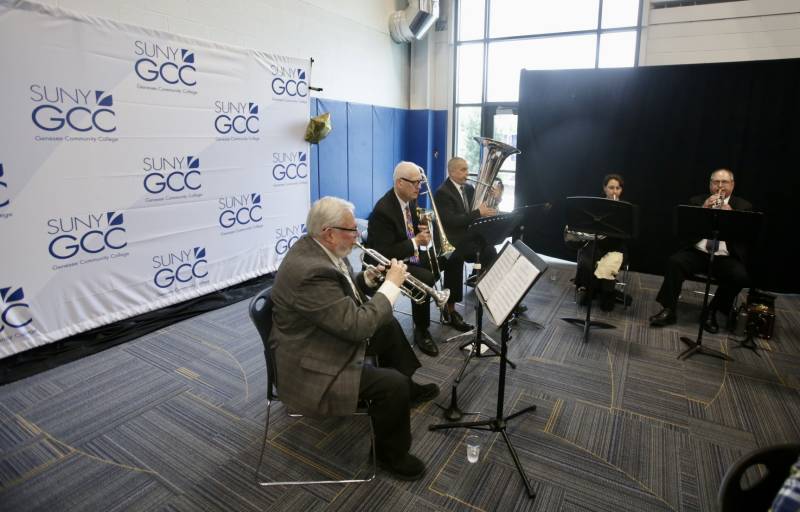
Photo by Nick Serrata
